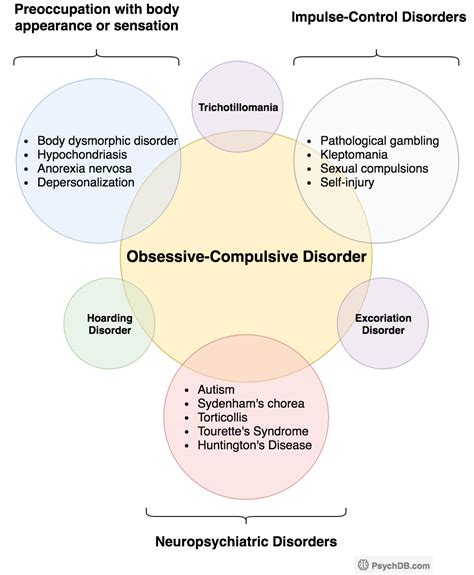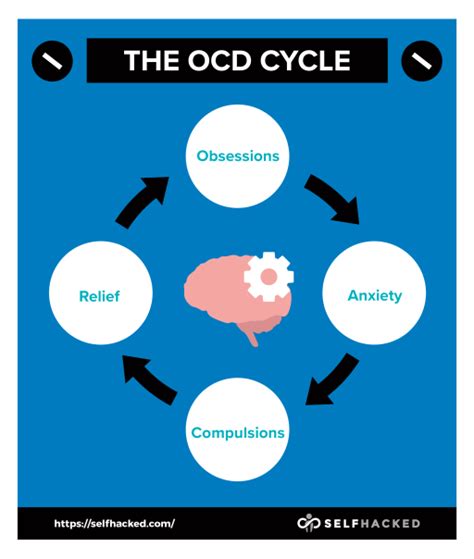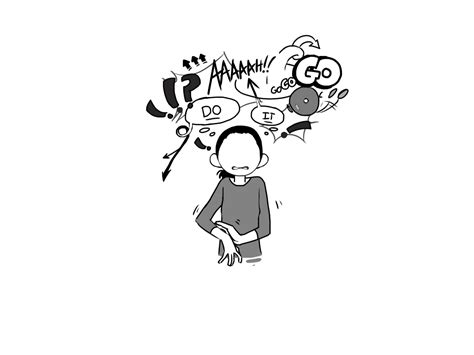Trauma, stress, and abuse can exacerbate the symptoms of OCD. Individuals with OCD experience strong urges to complete specific tasks or engage in repetitive rituals. Unfortunately, for those affected by this condition, obsessions and compulsions can start to dominate their daily lives.
Why does OCD suddenly get worse?
OCD symptoms can become more severe as time goes on, leading us to wonder what exactly causes OCD to worsen. The answer lies in comorbidities, which are other mental health conditions that can trigger and exacerbate OCD symptoms. Numerous studies¹ have shown that a majority of individuals with OCD also experience other types of mental health conditions. This means that addressing these comorbidities is crucial in managing and reducing the intensity of OCD symptoms.
Why is my OCD becoming too much?
When the symptoms of OCD become overwhelming or worsen, it is common to feel isolated and helpless. At a severe level, OCD can significantly hinder a person’s capacity to function at work, attend school, sustain relationships, or even take care of their own well-being. The obsessions and compulsions associated with OCD can feel as though they are consuming every aspect of your life.
How can I stop my OCD from getting worse?
OCD, or Obsessive-Compulsive Disorder, can be a challenging condition to manage. While meditation may not directly cure OCD, it can help alleviate symptoms and prevent them from worsening. Research suggests that meditation can positively impact brain activity and reduce anxiety, which are key factors in OCD.
One study published in the Journal of Anxiety Disorders found that mindfulness meditation, a type of meditation that focuses on being present in the moment, can significantly reduce OCD symptoms.
Another study in the Journal of Clinical Psychology showed that meditation can improve cognitive flexibility, which is often impaired in individuals with OCD.
By practicing meditation regularly, you can develop a greater sense of self-awareness and learn to observe your thoughts and urges without judgment. This can help you recognize when OCD
What can happen if OCD gets worse?
Ways untreated OCD affects your life
If left untreated, OCD can have a significant impact on your daily life. One of the most noticeable effects is the potential isolation from the people who care about you. As you struggle to cope with this isolation, you may find yourself spending even more time engaging in compulsions. This can create a vicious cycle where the compulsions worsen, leading to further isolation.
In fact, you may start avoiding going outside altogether and even social gatherings. These behaviors can further exacerbate the negative impact of OCD on your life, making it even more important to seek treatment and find effective coping mechanisms.
What is the most severe form of OCD?
Harm OCD is a condition that can deeply disturb individuals due to the violent thoughts that almost everyone has experienced at some point. While most people are able to dismiss these thoughts easily, those with harm OCD can feel completely overwhelmed by them.
What does severe OCD look like?
At its most severe, obsessive-compulsive disorder (OCD) can greatly hinder a person’s daily functioning. It can affect their work, school attendance, ability to run errands, and even their self-care. Individuals with severe OCD often experience obsessions related to cleanliness and germs, leading them to spend hours each day washing their hands, taking showers, or excessively cleaning their homes.
When is the peak of OCD?
Obsessive-compulsive disorder (OCD) is commonly known to have a chronic pattern of symptoms that fluctuate over time. It typically emerges during two peak periods in a person’s life – early adolescence and early adulthood. Unfortunately, seeking help and starting treatment for OCD is often delayed for a significant number of years.
Is OCD the worst mental illness?
OCD, or Obsessive-Compulsive Disorder, is a chronic disorder that affects a significant percentage of individuals, ranging from 60 to 70 percent of cases. The impact of OCD on one’s quality of life and financial stability is substantial, making it one of the top 10 debilitating illnesses globally. Additionally, anxiety disorders, including OCD, continue to be prevalent and rank among the top 10 most common mental health conditions.
What is crippling OCD?
People who have obsessive-compulsive disorder (OCD) experience distressing obsessions and engage in repetitive behaviors known as compulsions. Obsessions are recurring thoughts that cause anxiety, while compulsions are actions performed to alleviate the distress caused by these obsessions. If left untreated, OCD can severely impact a person’s daily life, making it difficult to function normally.
Can a brain scan detect OCD?
According to a study conducted by researchers at the University of Michigan (U-M), it has been found that individuals who suffer from obsessive-compulsive disorder (OCD) often exhibit certain abnormalities in their brain scans. These individuals tend to engage in repetitive behaviors, such as excessively cleaning their hands multiple times in a row. This research sheds light on the neurological aspects of OCD and provides valuable insights into the condition.
What is it like living with severe OCD?
Living with someone who has OCD can be challenging and draining. Family members and friends often find themselves deeply involved in the person’s rituals, taking on additional responsibilities and caring for daily activities that the individual with OCD is unable to handle. This can be a demanding and exhausting experience for everyone involved.
How do you fix extreme OCD?
While meditation can be a helpful tool for managing stress, it is important to note that it is not a cure for extreme OCD. Obsessive-Compulsive Disorder (OCD) is a complex mental health condition that often requires professional treatment. However, meditation can be used as a complementary practice to support individuals with OCD.
Research suggests that meditation can help individuals with OCD by reducing anxiety and improving overall well-being.
It can provide a sense of calm and relaxation, which may help alleviate some of the distress associated with OCD symptoms. Additionally, meditation can enhance self-awareness and mindfulness, allowing individuals to better understand their thoughts and emotions.
It is crucial for individuals with extreme OCD to work with a mental health professional who specializes in OCD treatment. Cognitive-be
What is the hardest type of OCD to treat?
Primarily obsessional OCD, also known as Pure-O, is considered one of the most distressing and challenging forms of OCD. Individuals with this type of OCD experience frequent and unwanted thoughts that can be extremely distressing. These thoughts often revolve around a fear of behaving in a way that is completely out of character.
What is the best medication for severe OCD?
While meditation is not a medication, it can be a helpful practice for individuals with severe OCD. Obsessive-Compulsive Disorder (OCD) is a mental health condition characterized by intrusive thoughts and repetitive behaviors. While medication is often prescribed to manage OCD symptoms, meditation can be used as a complementary approach.
Research has shown that meditation can help reduce anxiety and stress, which are common symptoms of OCD.
A study published in the Journal of Clinical Psychology found that mindfulness meditation, a type of meditation that focuses on being present in the moment, can significantly reduce OCD symptoms.
Another study published in the Journal of Anxiety Disorders found that meditation can improve cognitive flexibility, which is the ability to shift attention and adapt to new situations. This is particularly important for individuals
What is the best medicine for severe OCD?
While meditation can be beneficial for stress relief, it is important to note that it may not be the best medicine for severe OCD. Obsessive-Compulsive Disorder (OCD) is a mental health condition that typically requires professional treatment. Medication and therapy, such as cognitive-behavioral therapy (CBT), are commonly used to manage OCD symptoms.
However, meditation can still be a helpful complementary practice for individuals with OCD.
It can promote relaxation, mindfulness, and self-awareness, which may aid in managing anxiety and stress associated with OCD. Additionally, meditation can improve overall mental well-being and provide a sense of calm.
Scientific research supports the potential benefits of meditation for mental health. A study published in the Journal of Clinical Psychology
What happens if severe OCD is left untreated?
If OCD is left untreated, it can have significant negative effects on your mental and physical well-being. The recurring thoughts and urges associated with OCD can disrupt your thinking and make it difficult to concentrate or remember things in the short-term. Additionally, the intense compulsions that often accompany OCD can drain your energy, both physically and mentally. These compulsions can also take up a significant amount of your time, preventing you from engaging in other important activities.
Therefore, seeking treatment for OCD is crucial in order to alleviate these symptoms and improve your overall quality of life.
Can severe OCD cause brain damage?
Can OCD cause damage to the brain? OCD has been found to have a profound impact on the brain, resulting in a notable decrease in the density of grey matter in certain areas. In more severe cases, this alteration can have long-lasting effects on the functioning of the brain in individuals with OCD. However, it is important to note that with the appropriate therapy and medication, most people with OCD can still lead fulfilling and content lives.
Can untreated OCD leads to schizophrenia?
It is highly unlikely that Obsessive-Compulsive Disorder (OCD) can directly cause the development of schizophrenia. However, individuals with OCD may have a higher likelihood of experiencing schizophrenia compared to those without OCD.
Does OCD affect life expectancy?
Research has shown that there is a connection between Obsessive-Compulsive Disorder (OCD) and various metabolic and cardiovascular outcomes. In addition to these findings, preliminary evidence also suggests that OCD may be linked to a wide range of other health problems. It is important to note that individuals with OCD have a higher risk of mortality compared to the general population. These findings highlight the significance of addressing OCD and its potential impact on overall health.
Related Article
- Why Is My Novo Not Hitting?
- Why Is My Novo Blinking White?
- Why Is My Njoy Not Hitting?
- Why Is My Ninja Blinking Red?
- Why Is My Ninja Blender Blinking?
- Why Is My Ninebot Scooter Beeping?
- Why Is My Niimbot Not Printing?
- Why Is My Newborn Kitten Panting?
- Why Is My New Roof Leaking?
- Why Is My New Caulk Cracking?


